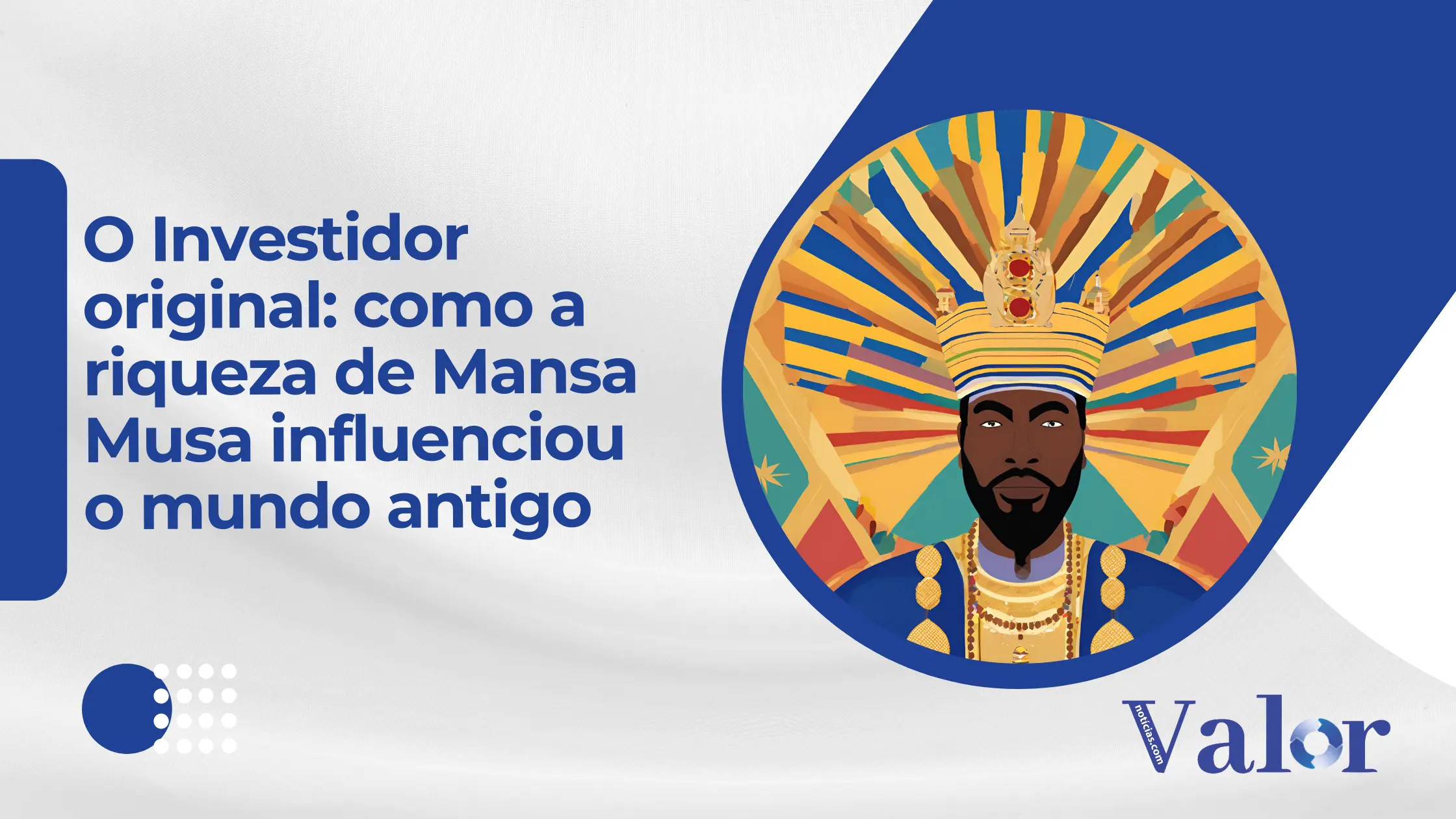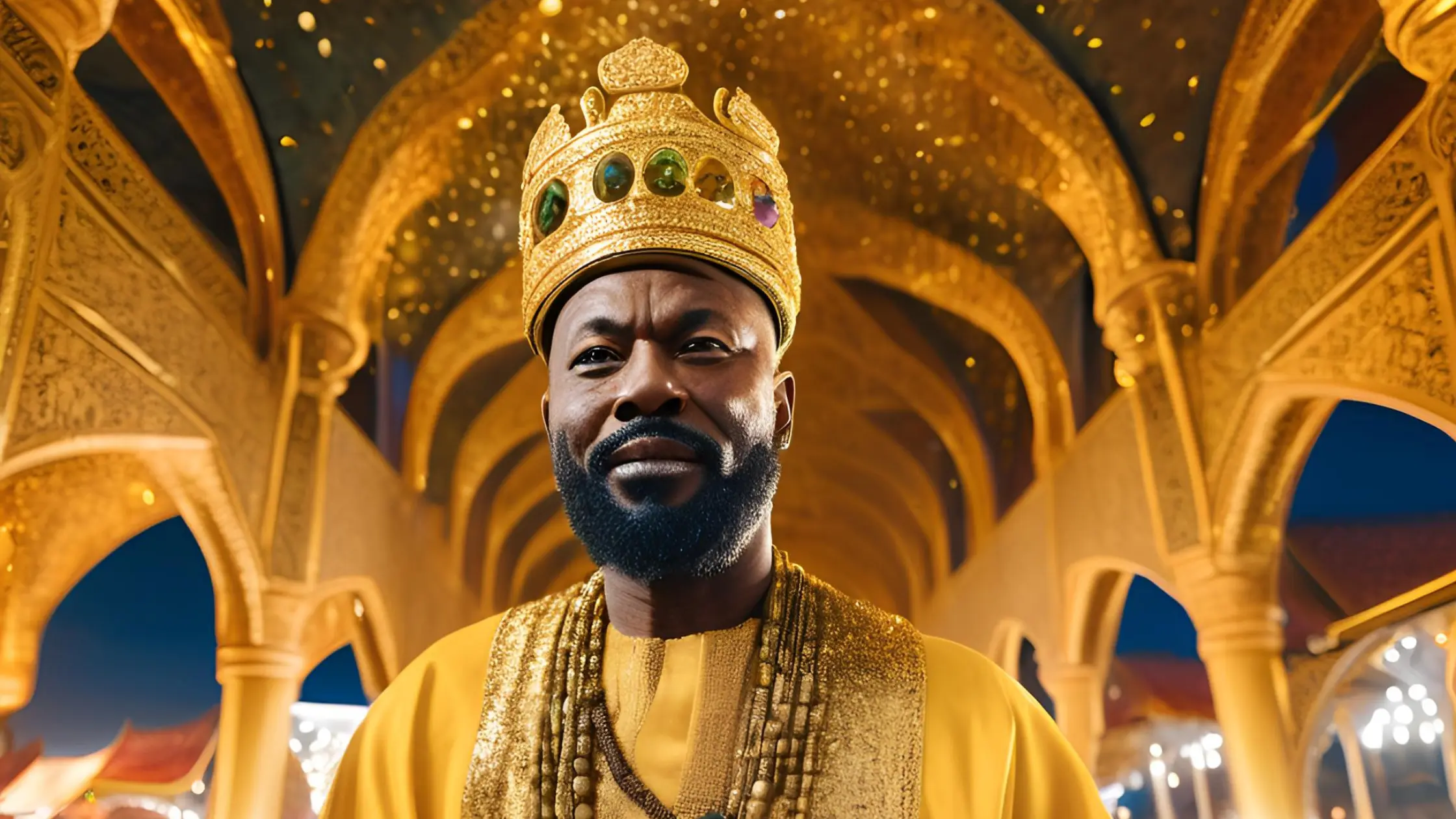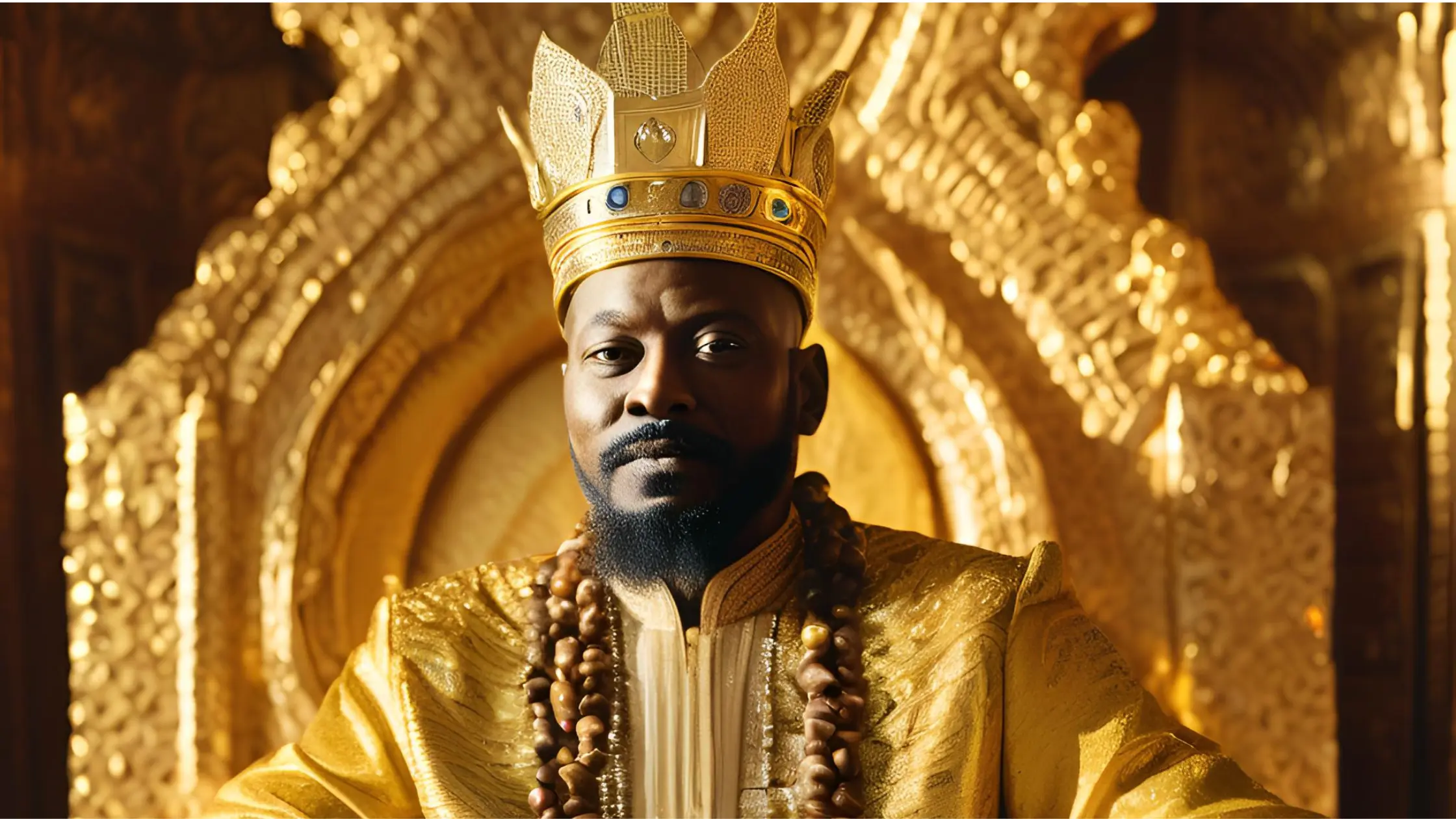The Original Investor: How Mansa Musa's Wealth Influenced the Ancient World

The legacy of Mansa Musa, the richest king in history, continues to be a source of fascination and impact in the modern world.
Advertisements
However, it was in the past that his actions resonated most overwhelmingly.
Ruling the Mali Empire in the 14th century, Mansa Musa not only amassed unimaginable wealth.
But it also transformed this fortune into a means of geopolitical and cultural power.
He distinguished himself as a pioneering investor whose influence spilled beyond the borders of his vast nation to shape the economies, politics, and cultures of an interconnected world.
See also: Shared Finances: What They Are, Benefits, and How to Organize Them
The Monumental Grandeur of Mansa Musa
Mansa Musa inherited the throne in 1312, a time when the Mali Empire was in full expansion.
The geographic area under their control included one of the most fertile and rich areas of West Africa.
Thus, ranging from the tropical forest to the vast Sahara.
However, the decisive factor in his immense fortune was gold.
The abundance of the precious metal in its empire made Mali the main global source of gold.
In this sense, supplying markets throughout Europe and the Middle East.
With such a powerful economy, Mansa Musa quickly became the richest man on the planet.
Thus, with modern inflation-adjusted estimates suggesting his fortune would be worth hundreds of billions of dollars.
However, limiting Mansa Musa's impact to gold would be unfair.
The monarch demonstrated a singular understanding of how wealth and influence combined to shape the destiny of a civilization.
He was not a simple hoarder of resources, but a strategist who invested in infrastructure, religion, and education.
Under his rule, the Mali Empire not only prospered but also established itself as a cultural and intellectual center.
It is important to note that gold was not just a symbol of opulence; it was an instrument of development and power.
Mansa Musa's decisions about how to use his wealth were revolutionary, and their impact was felt far beyond his borders.
He invested in mosques, universities and study centers that transformed cities like Timbuktu into strongholds of knowledge.
In this way, its influence went beyond the mere economy to reach the cultural and religious arena, boosting the academic and cultural development of the entire region.
The Pilgrimage that Changed Economies

Perhaps the greatest demonstration of Mansa Musa's power was his legendary pilgrimage to Mecca in 1324.
An event that not only reaffirmed their Islamic faith, but also altered entire economies along the way.
With a retinue of over 60,000 men, including guards, camels laden with gold, courtiers, servants, and soldiers, his caravan was a vision of unprecedented opulence.
During the trip, Mansa Musa distributed so much gold that it devalued the currency in places like Cairo, Medina, and even Mecca, causing rampant inflation.
On the one hand, this generosity injected substantial economic resources into key cities, stimulating trade and infrastructure construction.
On the other hand, the sudden devaluation illustrates the enormous impact that a single economic event can have on entire monetary systems.
This episode highlights how Mansa Musa was more than a ruler; he became a global economic force.
The fact that his pilgrimage is remembered as a landmark in global history is a testament to the reach of his influence.
Furthermore, the pilgrimage also had diplomatic implications.
Mansa Musa strengthened ties with other Islamic nations, creating alliances that ensured Mali's relevance in the Muslim world.
He sponsored the construction of mosques along the way and connected with scholars and theologians.
Whose teachings would further enrich the educational institutions of his empire.
Indeed, this highlights his ability to use religion as a cultural and diplomatic bridge, uniting different parts of the world under a common ethos.
++ Price Table or SAC: differences and which is the best option
Timbuktu: The Cradle of African Intellectuality
The city of Timbuktu became a jewel of knowledge under the patronage of Mansa Musa.
Once a simple village, it has become an intellectual and cultural center, home to libraries filled with precious manuscripts on science, mathematics, philosophy, and theology.
Mansa Musa invested heavily in education, founding the famous University of Sankoré, which attracted scholars from around the world.
This investment in education was one of the key factors that solidified the empire's legacy as a center of learning.
Timbuktu's importance as a metropolis of learning resonated throughout the Muslim world, establishing Mali as an epicenter of Islamic and African culture.
Intellectuals from all walks of life came to the city, contributing to the exchange of ideas and technologies.
Mansa Musa's patronage not only elevated Mali's status but also transformed the city into a beacon of educational development that would inspire future generations.
It is interesting to note how Mansa Musa's support for knowledge differed from the pattern of military or expansionist investments common in other parts of the world.
He believed that the intellectual advancement of his population would strengthen the empire in a sustainable and lasting way.
With this, Timbuktu's scholarly tradition was established and secured as a valuable resource that extended beyond the medieval era.
| Mansa Musa's Actions | Impact on the Ancient World | Long-Term Impact |
|---|---|---|
| Pilgrimage to Mecca | Stimulus and inflation in local economies | Cultural and religious diplomacy |
| Construction of mosques | Expansion of Islamic influence in West Africa | Preservation of the architectural legacy |
| Foundation of Timbuktu | Transforming the city into a global academic center | Lasting impetus for education and knowledge |
The Social Investor: Architecture and Religion

Mansa Musa also invested in building religious infrastructure that still stands as a testament to his vision.
One of the most notable is the Djinguereber Mosque in Timbuktu, built by the Andalusian architect Abu Es Haq es Saheli, who was brought from Cairo.
This structure not only symbolized the king's religious commitment.
But it also stood out as an architectural landmark, representing the fusion of African and Islamic styles.
Mansa Musa's investments were meticulously planned to extol his faith and the greatness of his empire.
Another fascinating point is how Mansa Musa managed to combine spirituality and pragmatism.
He understood that spiritual power was a complement to political power.
By building mosques and supporting Koranic schools, he consolidated the presence of Islam in his kingdom, but he also created institutions that promoted social stability and order.
His strategy was clever: religion was not just a belief system, but also a mechanism of governance and social cohesion.
++ Financial risk management: what it is and how to apply it in your company
Mansa Musa: The Global Influence on Trade and Diplomacy
Furthermore, he contributed to the architecture of the Sahel, which is now recognized worldwide.
The distinctive aesthetics of buildings constructed with clay and palm wood continue to inspire architects and urban planners.
This is a clear example of how Mansa Musa's investments not only responded to the needs of his time.
But they also created a cultural and aesthetic legacy that is still admired and studied.
Mansa Musa's dominance of trans-Saharan trade was another important aspect of his wealth and influence.
Trade routes across the vast Sahara were vital, connecting the Mali Empire to markets in North Africa, the Middle East, and even Europe.
These roads were like economic arteries that transported gold, salt and other valuable goods, further strengthening Mali's economy.
Control and management of these routes ensured that the empire remained one of the most powerful in West Africa.
Furthermore, Mansa Musa was also a pioneer in using diplomacy to facilitate trade.
He established relations with powers such as the Mamluk Empire and several Middle Eastern sultanates, opening channels for the exchange of goods and knowledge.
In other words, this was essential for cultural and commercial exchange, and its decisions created a basis for future global trade.
In this way, Mansa Musa ensured that his empire became a vital center of international trade, something that would shape economic relations for centuries.
Mansa Musa: Further information
The effects of his economic policies were felt even in Europe.
Mali's gold supplied many European cities, influencing local economies and even Renaissance art, which flourished in part due to inflows of wealth from Africa.
This shows how Mansa Musa's economic reach was global, impacting continents in substantial ways.
The commercial and cultural exchanges he facilitated paved the way for increased contact between Africa and Europe, albeit indirectly.
The Legacy of a Visionary Investor
Mansa Musa's journey teaches valuable lessons about leadership, investing, and the wise use of resources.
In this sense, he did not limit himself to accumulating wealth; instead, he directed his investments to building institutions that would shape the future of his people.
His pilgrimage, his monumental buildings, and the development of Timbuktu as a center of learning proved to be initiatives far beyond his era.
In many ways, he was an original investor who understood the importance of diversifying his investment “portfolio” to include education, religion, commerce, and diplomacy.
In short, this holistic approach strengthened the Mali Empire, ensuring its relevance long after the end of its reign.
The impact of his decisions is felt to this day, with Timbuktu still synonymous with scholarship and African gold recognized as a driver of the global economy in the past.
Mansa Musa's influence transcended material riches.
He planted seeds of development that would flourish for centuries, and his ability to use wealth as an instrument for the greater good is an inspiration.
The story of the richest king of all time reminds us that true wealth goes beyond gold and lies in the ability to transform resources into lasting progress.
